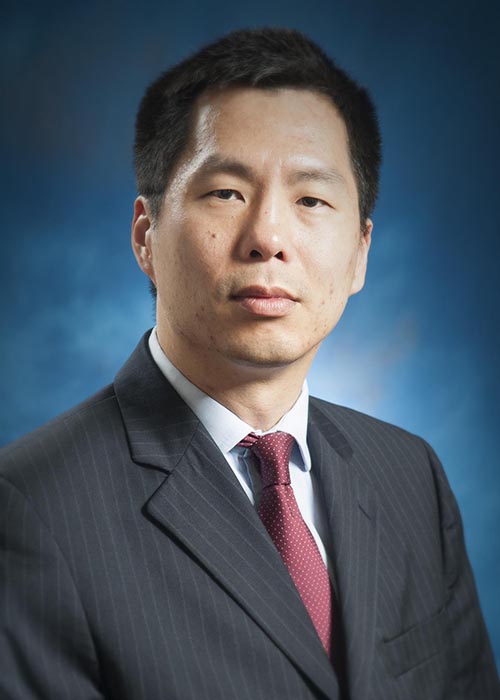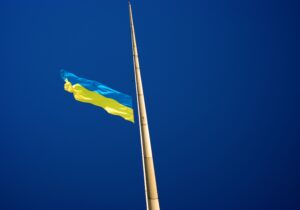With Russia’s invasion of Ukraine, the discussion of just war theory has resurfaced in the West. While those who support just war theory believe that Russia’s invasion of Ukraine is unjust, these proponents have picked different targets in their advocacy. Some, like Marc LiVecche, respond to those who argue for a policy of pacificism with respect to Ukraine. Others, such as Eric Patterson, push back against those who claim the West had provoked Russia into war. Instead, Patterson argues that Russia is responsible for the war and some form of restoration should be given to the Ukrainians post bellum. Paul Miller criticizes the Catholic Church for, under Pope Francis, substituting pacificism for just war theory in the Church’s condemnation of Russia’s invasion.
The Russian Orthodox Church has fared even worse than its Catholic counterpart with severe criticism in the West and Ukraine for supporting Russia’s invasion. Those who seek to explain the Church’s backing of Putin’s war aims point out that church-state relations are closer than one finds in the West—each institution working in symphony with one another. Further, the Church needs the state to maintain its position in society after suffering decades of attacks under the Soviet Union and then confronting well-funded foreign competition from American evangelical missionaries in the post-Cold War period. In exchange for its support, Putin has made Orthodoxy one of the central pillars of Russian national identity.
While Patriarch Kirill’s decision to support Putin’s war is wrong, political and theological calculations constrain the Russian Orthodox Church. For instance, there is no just war tradition in Orthodox thought. Following Romans 13:1, Orthodox Christians did not entertain the idea of refusing service to state authorities on moral grounds, since “there is no authority that is not from God.” Thus, serving in the military was not dishonorable, even in the service of a pagan ruler. For the Orthodox Church, war is tragic but inevitable as a condition of original sin. For those who kill in war, the Church recommends a period of repentance but not outright refusal to serve in the military.
The absence of a Western type of political theology in Eastern Christianity can explain the absence of a just war tradition in Orthodox thought. Whereas in the West church and state are distinct and separate entities that sometimes work together and at other times are at odds with each other, Eastern Christendom historically has followed the model of symphony or harmony where the state focuses on worldly affairs and the church on divine ones. Later this model would be transformed into imperium and sacredotium where the state and church would be inextricably bound together and complement one another.
The result of this arrangement was that the Church never felt the need to address social and political issues independently of the state. It never asked for or claimed political power for itself. Orthodox “political theology” as it were—how theological concepts and ideas relate to politics—did not exist, or certainly did not challenge imperial power. Orthodox political theology was to legitimize the existing political order, which in turn supported the Church and protect the Christian faith.
By contrast, the West followed Augustine’s “two cities,” the earthly and the divine, with their tenacious duality. After the collapse of the Western Roman Empire in AD 476, the Western Church was independent from political power and claimed superiority over politics because of its divine origins and salvific power. This allowed the Western Church to develop a political theology, which included just war theory, not only to critique secular power but also to implement its own. Nothing like these conditions or ideas existed in Orthodox Christianity. Simply put, no political theology, no just war theory.
While Orthodox Christianity lacks the historical tradition of just war theory to criticize war, it does have a theological resource it could draw upon to condemn Russia’s invasion of Ukraine: personhood. In the late nineteenth and early twentieth centuries, Russian theologians like Vladimir Solov’ev, Pavel Florensky, Sergei Bulgakov, and Vladimir Lossky applied Trinitarian theology to understand the person. According to these thinkers, the person is defined by love, relationality, freedom, and an irreducibility that could only find completeness in a community of believers. This concept of the person mirrors the Trinitarian structure of the Christian God where the Father, Son, and Holy Spirit are defined by their relations to one another, are free and unique entities, and find their completeness as a single deity.
According to Aristotle Papanikolaou, this understanding of the person—unique, free, irreducible, communal—makes it compatible with the idea of human rights. If human rights are understood as moral, inherent, universal, and inalienable to the individual, then this account comports with the Orthodox theology of personhood. Admittedly human rights, or the language of human rights, can morph into hyper-individualism and rudderless autonomy that is antithetical to the Orthodox account of personhood. But when grounded in a metaphysics that is congruent with Christianity, human rights can map onto the Orthodox understanding of the person.
Orthodox Christians therefore can criticize Russia’s invasion of Ukraine as a violation of their understanding of personhood that also happens to violate Ukrainian human rights. War is the ultimate violation against the person, destroying not only the individual’s life and property but also the community in which the person resides. This understanding of personhood is a theological resource upon which the Russian Orthodox Church could draw to critique Putin’s war against Ukraine. Lacking a political theology or a just war tradition is just an excuse for the Russian Orthodox Church not to condemn evil as it manifests itself in the here and now. The Church must look inward and rediscover its traditions, practices, and theology to show its own believers—and the world—that it still can carry out and continue the work of Jesus Christ on this earth.







 Sponsor a student for Christianity & National Security 2024
Sponsor a student for Christianity & National Security 2024